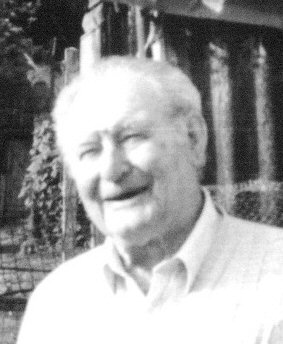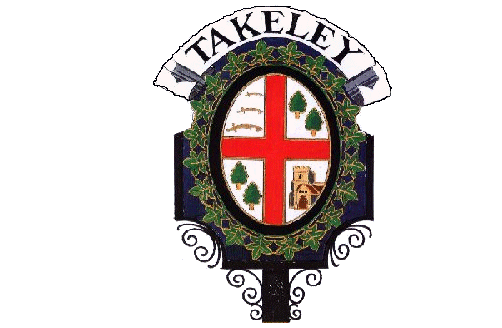|
11th August 1917 - 2008
Ron Monk – A character, his life until 2008, by John Monk. character, his life until 2008, by John Monk.
My dad was born on August 11th 1917 at Duck End, Birchanger, Essex. His mother was Olive Emily Monk neé Wybrow and his father was Joseph Monk. Joseph was killed in the first world war on December 5th 1917 when dad was only four months old. Dad’s mother left Ron with her parents i.e. dad’s grandparents, Charlie and Louise Wybrow and then went to London working in a munitions factory. Olive later remarried but had little contact with Ron which had a profound affect on his later life. He never forgave her.
Dad’s early life was hard as his grandfather had a small holding. Dad worked at a very early age on the small holding looking after pigs, goats, geese and fowl. He also looked after horses that his grandfather had and on some occasions had to break in the horses. Many a time he told me he was covered in bruises after being thrown from the horse!!! Dad also went with his grandfather and uncles to harvest certain crops as his grandfather used to buy the ‘crop’ i.e. peas, parsnips etc. when the crop was young and then when the crops were ready take them to the market and sell them.
This period was in the 1920’s and 1930’s. Dad’s uncles, who he always called his brothers, taught dad at an early age to poach and dad became a very skilled poacher. His poaching stories are legendary and his family and certainly our family never went short of food.
Sometime during the 1930’s dad decided he wanted a change from his austere hard life and ran away and worked for a traveling fair. While working on the fair his love for steam engines was born as the fair had a steam engine driving the merry-go-round etc. After a brief period with the fair (I think he found life even harder at the fair) he returned to his grandparents and carried on working on the farm. By this time his grandfather had bought a larger smallholding at Start Hill called Pantiles and dad carried on as before. This period didn’t last long as dad was by then about 16 and to say the least had a very rebellious streak. After a violent row with his grandfather he left and ended up in lodgings in Takeley Street. This period was between about 1930 and 1935. Whist staying in his lodgings dad met his future wife Dorothy Annie, fell in love and married her in 1936.
Dad and mum had three children, May, John and Jean and lived in The Street, Takeley until the late 1940’s. Dad, after getting married managed to get a job with John Pattern who owned a farm at Much Haddam. John Pattern also had several sets of Fowler steam engines and dad’s apprenticeship began. He worked his way from a chaff and cavings worker to a steam engine driver.
Just before world war two dad was “head hunted” and went to work for a local farmer at Bridge End, Hatfield Broad Oak. The farmers being the Hockley family, dad’s boss was Raymond Hockley. Dad contracted out to local farms where he threshed the corn stacks etc. During the war dad tried to leave and volunteered for the merchant navy but was refused as his occupation was classed as “reserved”. During these years dad was in charge of German and Italian POWs and land army girls and he had many stories too numerous to talk about today.
After the war dad returned to John Patern’s as a steam plowing engine driver. He travelled throughout Herts & Essex working on farms, plowing and cultivating the fields. Of couse during all his life dad was still pursuing his poaching skills. Dad worked we believe on one of the last pairs of steam engines in the country, their names being Prince and Princess. In the 1950’s steam engines became redundant and dad became a “rabbit cleansing officer”, quite ironic really as dad became a legalized poacher. This job did not last long as after two years he was told he had to gas the rabbits, which was against his principals as he ferreted and shot which was to him a much better sport. So dad then had another job and he became a milk roundsman which he loved as it was an open air job and driving round the Essex country lanes dad could still carry out his occasional bag of rabbits and pheasants (he always carried a 410 in his milk float).
When Dad retired to Hillcroft he worked on his garden and his “Harvey Centre”. The Harvey Centre was a collection of sheds, chicken huts and runs and ferret lockers , all made up from recycled materials. He ran out of space and encroached on the former railway line, now the Flitch Way and when the authorities objected it had to be dismantled. It took three weeks of hard labour to dismantle this as it was joined together with 4 inch nails.
When you visited my mum and dad you never left their house without an offering of a basket of newly dug vegetables. Dad and Mum loved to visit his daughters at their respective homes, May at Giffords Farm , Tindon End, Gt Sampford. and Jean in Dorset.
Dad said Hillcroft was his heaven and when mum was in good health it couldn’t have been better for them.
He was now able to tend his animals as he did as a boy at Pantiles in more congenial conditions. Dad showed a great deal of kindness to his elderly neighbours and I am told also to his elderly customers when he worked as a milk roundsman in the Rodings area.
After the passing away of mum, dad lived on his own for 11 years, despite having muscular degeneration he coped very well.
One of the highlights of dads life was becoming a TV Celebrity. He was interviewed by Paul Heiney and Pam Rhodes on Country Days. The producer and director Jerry Anderson told me that he was a natural behind the camera.
I think Sarah one of dad’s granddaughters summed up her grandfather thus, “He had an engaging wit which was also keen, sometimes a little close to the bone. He was an excellent raconteur and could hold an audiences attention.”
Goodbye dad, we shall miss you.
|



